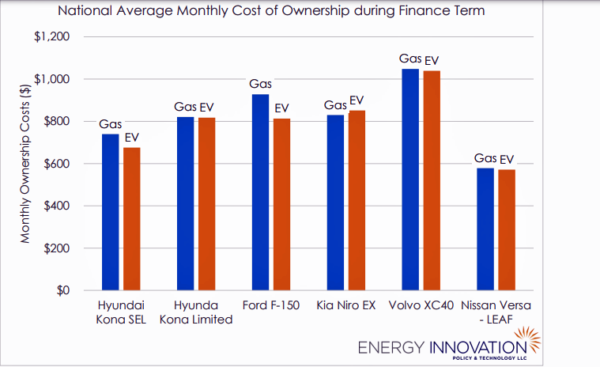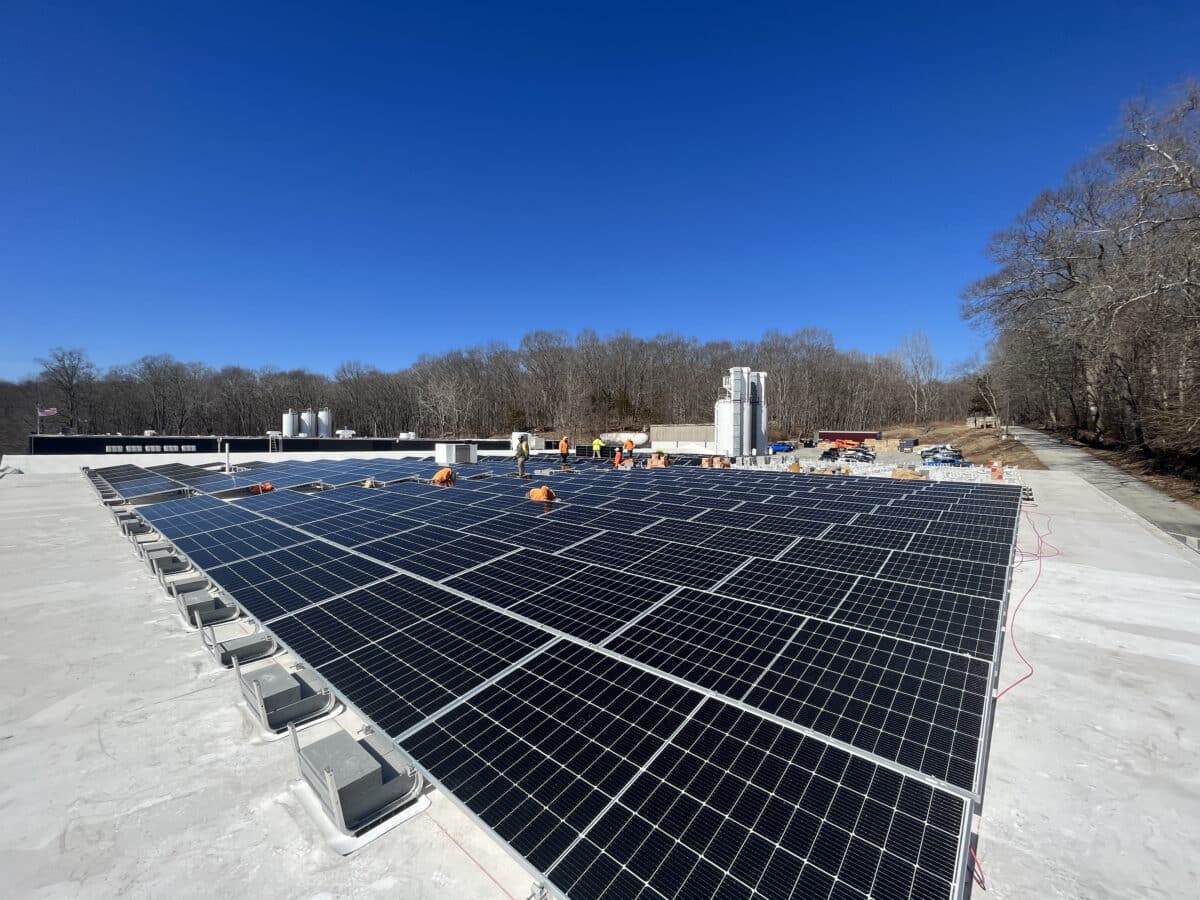Owning an electric vehicle can save drivers thousands of dollars per year, with $6,000 average savings over the vehicle’s lifetime, but the savings is dependent on rebates, state fees, and the cost of gas and electricity.
As gas prices escalate in the United States, many Americans are considering investing in an electric vehicle. The initial purchase price is a deal stopper for some, but when you look at the numbers, it appears that owning an electric vehicle is, in many states, actually cheaper on a monthly basis than a gas-powered vehicle. A study conducted by Energy Innovation Policy & Technology LLC finds that in most states, new electric vehicles (EVs) are cheaper to own on a monthly basis than gasoline-powered vehicles from the day they are driven off the lot.
The study found that owning an EV can save consumers an average of $6,000 over the vehicle’s lifetime. The big caveat, however, is that the savings is dependent on upon Congress passing EV consumer incentives. This includes, at minimum, the $7,500 federal tax credit for EV sales. While the tax credit is a useful method of stimulating sales (and purportedly removing gas-powered vehicles off the roads), it comes with a catch—manufacturers can extend the credit to 200,000 EV sales in year. It is not insignificant that both Ford and Nissan will likely exceed the federal tax credit cap this year. Results of the study shows that increasing the tax credit amount to $10,000 would make EVs cheaper in nearly every state-vehicle comparison in the study’s modeling. Currently gas prices are even higher than when the modeling was done, but if gas prices were to drop, tax credits take on even greater significance because the operating cost difference shrinks.
The study reviewed the monthly costs of owning six different EVs, comparing them to their gasoline equivalents.
These costs include financing, state taxes and fees, state and federal rebates and tax credits, fuel, maintenance, and insurance.
Financing costs are about the same between EVs and gas-powered vehicles, except where manufacturers are discounting interest rates for EV purchases. The good news is that after a loan is paid off, EVs become dramatically cheaper to own, with some saving as much as $1,500 to $2,000 per year, with some vehicle-state combinations as high as $3,000 per year.
Maintenance costs were found to be about 40% lower for EVs ($0.061/mile) compared to gasoline vehicles ($0.101/mile). Annual maintenance costs were estimated using per-mile estimates from DOE and estimated average annual mileage of 13,469 over the loan term using data from modeling done by the US Environmental Protection.
Vehicle fueling costs are estimated using annual mileage, fuel efficiency from FuelEconomy.gov, current average state gasoline prices from AAA as of May 4th, 2022 (which have risen since then) and 2021 average residential electricity rates. Different states levy different fees on electric vehicles—many assessing a “tax” to compensate for lost gasoline tax revenue. (The study does not look at the associated costs of charging from home with solar energy.) Maintenance, fuel costs, and other fees were added together to get the estimated annual operating costs.

The results show that the EV models of the Hyundai Kona SEL and Ford F-150 are cheaper in every single state to finance and own today than the equivalent gasoline model. The Volvo XC40 and Nissan models are just a few dollars or less in several of the states where it is cheaper to own the gasoline version. For example, the Nissan Leaf’s monthly difference is less than $15 in Idaho, Indiana, Kansas, Minnesota, Mississippi, New Hampshire, Ohio, South Carolina, Tennessee, West Virginia, Wisconsin, and Wyoming, and less than $1 per month in some states. Yellow shaded cells below show combinations where EVs were $15 or less per month more expensive to own. In states that have high electricity prices and/or lower gasoline prices, gasoline vehicles remain cheaper to own than EVs. Some of these states include Alaska, Georgia, Hawaii, Michigan, New Hampshire, Rhode Island, and Vermont.
While the initial sticker price on an electric vehicle may deter some from making the jump to electric from gas vehicles, the data shows that many EV models in many states are cheaper than a gasoline vehicle. The report authors note, however, that increased EV adoption is contingent on a federal tax credit of at least $7,500. “GM and Tesla have already exceeded the sales cap under this program, and Nissan and Ford will likely hit the cap this year. Without this incentive, it would cost consumers more per month during loan repayment to purchase an EV for nearly all vehicle-state comparisons we evaluated”.
Read the full report here.





